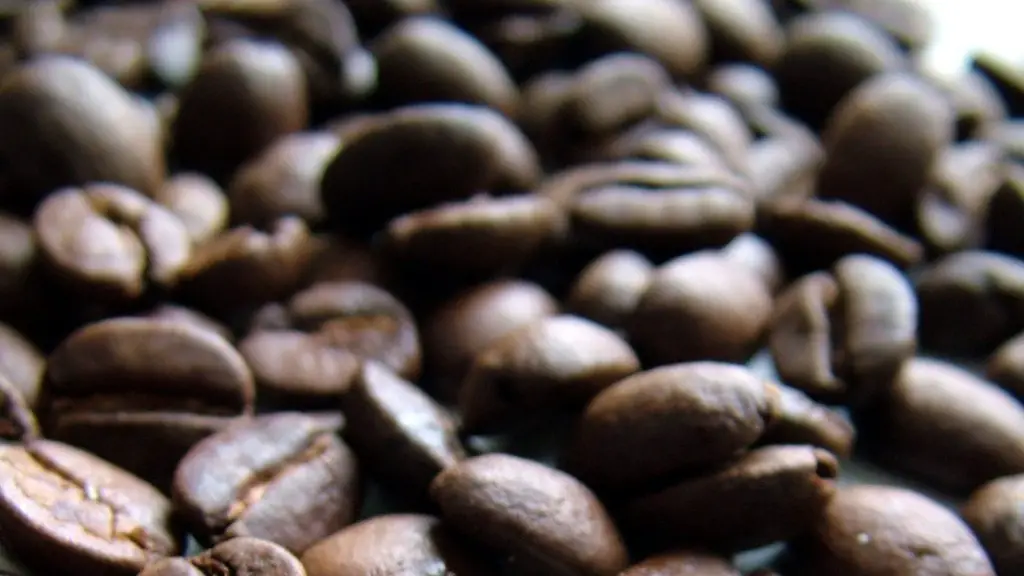Coffee is a popular beverage for many people, but is it safe to drink with diarrhea? It is understandable that people think their energy levels will be raised from the caffeine in coffee, but it is important to understand that the effects of this drink with diarrhea can be unpleasant. While it may depend on a person’s individual tolerance and how they use coffee, it is still highly inadvisable to drink it while experiencing diarrhea.
Coffee can be a diuretic, meaning it can cause increased watery excretion, as well as weakened muscles along the digestive track that can make it difficult to control diarrhea. Coffee also contains compounds that are known to irritate the lining of the intestines and could potentially worsen diarrhea. In addition, coffee can cause a person to become dehydrated since it can lead to increased urination, further compounding its effects.
Those who are suffering from diarrhea should avoid drinking coffee for the most part, as it can make symptoms worse. However, it is important to drink plenty of liquids, especially electrolytes, to help reduce the discomfort of diarrhea. It is best to consult with a doctor before deciding to drink coffee with diarrhea, especially if the symptoms have lasted for more than a couple of days.
Experts advise that coffee may not be the best choice for those with diarrhea, as the effects of coffee can be harsh on an already sensitive digestive system. Instead of relying on coffee, it is better to rely on more traditional methods of managing diarrhea, such as eating natural probiotics like yoghurt or taking herbal tea to help with nausea and stomach pains.
While coffee is a great source of energy and a delicious drink, it is important to take into account the effect it can have on a person’s health and well-being. Drinking coffee with diarrhea can worsen symptoms, as it can lead to further dehydration and cramps. It is best to avoid coffee when one is suffering from diarrhea, and seek out other methods for managing symptoms.
Effects of caffeine on the body
Coffee contains caffeine, which affects the body in many different ways. Caffeine can cause a person to feel more alert and energized, but it is also a known stimulant, meaning that it can lead to anxiety, insomnia, and headaches if consumed in large quantities. Caffeine can also lead to increased heart rate and blood pressure, digestive issues like nausea and stomach pain, and can even worsen or trigger existing medical conditions.
For those with diabetes, coffee can interact with medications and make it difficult to control blood sugar levels. Caffeine can also interact with certain medications for those with thyroid conditions, causing symptoms to worsen. Coffee can also interfere with the absorption of minerals from food, increasing the risk of deficiencies. It is important to pay close attention to the effects of coffee on the body, especially if one is already suffering from symptoms of diarrhea.
Unfortunately, caffeine is a highly addictive substance, which can make it difficult to quit drinking coffee. Those who have become reliant on coffee can suffer from withdrawal, which can include symptoms such as headaches and fatigue. These symptoms are only temporary, however, and gradually decrease over time.
Those who are sensitive to the effects of caffeine should try to limit their consumption, or consider switching to decaffeinated coffee or tea. There are also natural alternatives, such as herbal teas, which can be beneficial for those looking for an energy boost without the side effects.
Other methods for managing diarrhea
Though coffee may not be the best option for those suffering from diarrhea, there are still plenty of other ways to manage the symptoms. The most important thing is to ensure that one is getting plenty of fluids, as dehydration can make symptoms worse. Drinking clear liquids, such as water, broth, or electrolyte drinks, can help to replenish fluids, prevent dehydration, and can even help to reduce the severity of diarrhea.
It is also important to reduce the amount of fiber and fat in the diet, as these substances can be difficult for the digestive system to process. Eating plain crackers, toast, boiled potatoes, and plain rice can also help to reduce diarrhea symptoms. As well, probiotics, such as plain live yoghurt, can help to restore healthy flora in the intestine.
Typically, the symptoms of diarrhea will pass within a couple of days, however, it is important to consult a doctor if symptoms persist. A doctor may be able to recommend medications to help manage the symptoms, or to provide further advice on how to handle the situation.
It is understandable that people want to reduce the symptoms of diarrhea, but it is important to acknowledge that coffee can worsen the situation. It is best to avoid drinking coffee while suffering from diarrhea, and focus on more traditional methods of symptom management and rehydration.
Risks of drinking coffee with diarrhea
Though coffee may seem like a good way to get energy, the risks involved in drinking coffee with diarrhea should be considered. As mentioned, caffeine is a known stimulant, meaning that consuming it can have physical, mental, and emotional effects. It can also interfere with the absorption of some nutrients, leading to deficiencies.
The effects of coffee with diarrhea can be especially severe, as it can lead to dehydration and further strain the digestive system. This can worsen the symptoms of diarrhea, or even cause new symptoms to appear. In addition, coffee can increase the risk of developing dehydration and electrolyte imbalances.
Coffee can also interact with certain medications, making it difficult to manage symptoms. It is important to be aware of how coffee can interact with different medications, and to consult a doctor if one is taking any kind of medication. It is also advisable to drink plenty of fluids to reduce the symptoms of diarrhea, instead of relying on coffee.
Though coffee can be an enjoyable morning pick-me-up, it is important to consider the risks associated with drinking it when experiencing diarrhea. It is best to avoid coffee altogether and focus on rehydrating and managing symptoms with more traditional methods.
Benefits of drinking coffee
Despite the risks associated with drinking coffee with diarrhea, there are still those who rely on this beverage as a regular source of energy. Many people believe that coffee offers numerous health benefits, such as increased alertness, improved concentration, and improved mood. Coffee is also known to be rich in antioxidants, which can help to reduce inflammation and protect against disease.
Coffee is also linked to various other health benefits, such as improved heart health, reduced risk of certain cancers, and even improved cognitive function. In addition, coffee contains caffeine, which can help to increase metabolism and aid in weight loss.
Though coffee has been linked to numerous health benefits, it is important to pay attention to the effects it can have on the body. Caffeine can be addictive, and it is important to ensure that one is getting enough nutrients, as coffee can interfere with the absorption of some vitamins and minerals.
Coffee can also be problematic for pregnant women, as the stimulant effects of caffeine can increase the risk of miscarriage. It is important to consult a doctor before drinking coffee while pregnant, or while breastfeeding.
Though there are many potential health benefits of drinking coffee, it is still important to consider the risks associated with this drink, especially when combined with other health issues such as diarrhea.
Can coffee help cure diarrhea?
Coffee is often touted as a great source of energy and many claim that it can help with various health issues, such as diarrhea. However, there is no scientific evidence to support these claims. In fact, drinking coffee with diarrhea can be counterproductive, as it can worsen the symptoms and make it difficult for the body to recover.
Coffee is a diuretic, which means that it can lead to the loss of important minerals and electrolytes from the body. It is also known to irritate the digestive system, which can further delay the process of recovery. For these reasons, it is best to avoid drinking coffee while suffering from diarrhea.
Though caffeine is known to stimulate the body, it can also lead to dehydration, as it causes increased levels of urination. Dehydration is known to worsen symptoms of diarrhea, so it is important to consume plenty of water and electrolytes while managing the symptoms of diarrhea.
In conclusion, it is important to remember that coffee cannot cure diarrhea, and it can actually compound the problem by worsening symptoms. It is advisable to avoid coffee while suffering from diarrhea and seek out more traditional methods for symptom management.





